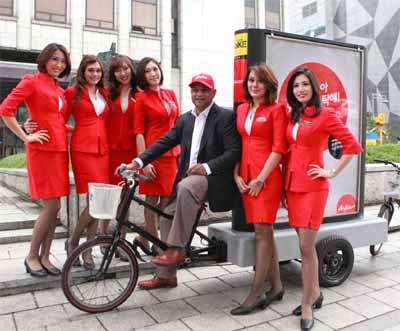published @ The Jakarta Post
A leader is not a boss behind a desk watching his subordinates work hard. A leader must glean data and information firsthand through impromptu visits. Then, he must make strategic decisions quickly, enable their implementation and control the work until the goals are accomplished. Jokowi has practiced what he preached during his stints serving as mayor of Surakarta and governor of Jakarta, which later catapulted him to the presidency.
During the barnstorming, he made many promises. He would develop a clean government and would be independent regardless of political coalitions. He would never buckle under the coalition party. The party would only join a coalition with no strings attached. And because of his impeccable track record, we believed Jokowi would be different. He gave us a glimmer of hope.
Prior to the appointment of his ministers, again, he stunned us by unprecedentedly seeking recommendations from the Corruption Eradication Commission (KPK) and Financial Transaction Reports and Analysis Centre (PPATK). This means Jokowi kept his promise of a clean government. Moreover, he scrapped fuel subsidies and burned foreign vessels caught fishing illegally. That proved Jokowi was decisive. So far so good.
However, his recent decision on a candidate for National Police chief really shocked us. Unbelievably, he proposed somebody who had been previously disqualified by the KPK and PPATK during the ministerial selection. Even after the candidate had definitively been named a graft suspect by the institution that has earned wide public respect and trust, the KPK, Jokowi still unequivocally defended his choice. We were taken aback. It was not the Jokowi we knew.
Worse, his political supporters ranging from TV stations, lawmakers to party chairpeople scrambled to convince us that Jokowi’s decision was right. They said that the candidate’s allegedly fat bank account had been cleared by an internal investigation as being legal wealth. And procedurally, the candidate was also recommended by the National Police commission. But their logic didn’t add up.
After believing in God, we, Indonesians, believe in the KPK. The institution would never name someone a suspect without solid proof. Nobody has ever been exonerated in a case handled by the KPK. Why does our beloved President Jokowi believe that this case will go against the grain?
He has nine candidates on his hands. Besides questionable integrity, the graft-suspect candidate achieved nothing of significance in the past, so why did Jokowi persistently promote him? Who gave him such lousy advice of abandoning the KPK and PPATK? Even if later, the KPK turns out to be wrong, why should he take the unnecessary risk of forfeiting his political capital of public trust? On this point, Jokowi has started to show his two-facedness on developing a clean government. We have also started to question his independence and think his law-enforcement commitment is too good to be true.
Jokowi’s decision on the National Police chief candidate ticked off his supporters, myself included. His volunteers, who believe he can bring Indonesia to prosperity, cried foul. But it seems he is unfazed, despite canceling, but not revoking, the candidacy.
* * * * *

